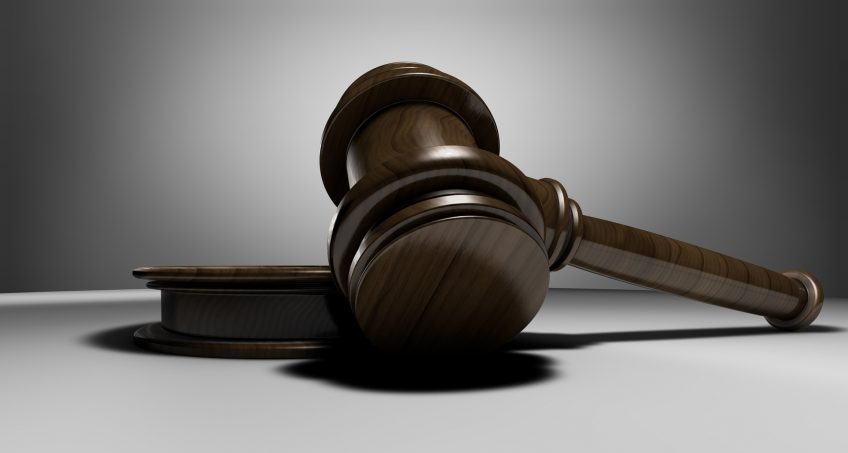UM Rejection Form Cannot Be Made Orally In Florida
Car AccidentsIn the case of Jervis v. Castaneda, Case Number 4D17-332, GEICO sought to enforce a UM rejection form that was “electronically signed” by the plaintiff. The Fourth DCA held that electronic process used did not comply with Florida’s UM statute and was void. In addition, the Fourth DCA rejected the notion that a UM rejection can be orally made by an insured-the statute requires a rejection to made in writing.
Facts Of The Case
Mr. Jervis had two vehicles on his GEICO policy and he purchased his policy online. GEICO claimed that he “elected” non-stacked UM coverage.
In the world of automobile insurance, insurance companies in Florida are required to “offer” anyone purchasing a policy for their car the opportunity to purchase UM (uninsured/underinsured motorist coverage) equal to the amount of BI (bodily injury liability) coverage purchased and includes a designation whether the UM coverage is stacked or not. This can be found in section 627.727, Fla. Stat.
The customer then has an option to select lower UM limits or reject the coverage altogether by signing a form. If the insurance company cannot produce a signed UM rejection form, then the insurance company has to provide the highest coverage limits available.
With that being said, the trial judge wrote a detailed order outlining why the UM rejection was void. The reasons why are discussed below.
Thereafter, GEICO was allowed to add an affirmative defense that Mr. Jervis “made an oral rejection of stacked UM coverage.” The case went to trial and the jury found in favor of GEICO for unknown reasons.
GEICO’s Wrong Turn
On appeal, the Fourth DCA held that “the failure to serve the mandatory notice precludes the insurance company from claiming that the insured orally made a knowing choice regarding the stacking of UM coverage.”
I could not have said that better myself and it makes sense. If the law requires a signed UM rejection form, then an “oral rejection” cannot be had after a finding that form electronically signed online was found to be invalid. The requirement of a signature implies that it must be written to be valid.
Problems With GEICO’s Online Form
At this point, we need to discuss why the trial judge found GEICO’s UM rejection form to void because the case opinion only made a holding as to whether an oral UM rejection is valid.
The trial judge determined as a matter of law regarding the online form that:
- It did not comply with the requirement to be in a 12 point type
- It was not actually signed by the person rejecting coverage
- The page on which the electronic signature appears did not have the warning language required by section 627.727, Fla. Stat.
- It was not actually possible to sign on the M9 form (the UM rejection form itself) because you were required to sign on a precurser page.
In addition to those reasons, the trial judge specifically found that “the signer had no electronic ability to deselect the form’s preselected waiver of stacked UM coverage.” Instead, the signer had to “passively accept or else … cancel” the insurance application.
Therefore, the trial judge felt that this take it or leave it approach defeated the presumption of validity referred to in the statute (meaning that if you signed a rejection, then it is presumptively valid).
So What Happens Now?
Since the jury found for GEICO at the first trial, this case is going to have to be retried. The fact that the opinion points out that the jury trial was only about whether an “oral rejection” was made by Mr. Jervis, I would imagine that there was an agreement as to damages where the plaintiff would recover a certain amount of money if the jury found for the plaintiff and, on the other hand, a certain amount of money (although less) if the jury found for GEICO.
On retrial, the purpose of any such agreement may be frustrated by the legal result in the Fourth DCA and the plaintiff may need to seek a determination from the jury as to the value of the damages.
In addition, this is a case where section 627.428, Fla. Stat. should operate to provide the plaintiff with attorney fees and costs because GEICO denied coverage (a.k.a. “coverage dispute”).
Get The Right Legal Help For Your Fight With The Insurance Company
In a Florida UM case, the insurance company “stands in the shoes” of the person who caused the accident. The jury is made aware of the existence of insurance coverage and the fact that such coverage was purchased by the plaintiff. No other facts are generally revealed about the insurance company unless there is a coverage denial or dispute.
When coverage is dispute, a Florida UM case is essentially a breach of contract where the parties argue over not the underlying accident itself but also about whether the insurance company has breached the policy terms. This is a dangerous position for the insurance company because the way that certain facts are decided by the jury will also determine whether there was a breach of contract.
Most coverage disputes are purely legal issues that go to a trial in a “declaratory action” in front of a judge and not a jury.
Call Today For Help With Your Case
If you have questions about whether you have UM coverage on your policy that applies to your car accident case, you should contact a Lakeland personal injury attorney to discuss these issues for free. If we think that you have a bona fide legal issue, we will let you know and will represent you on a contingency fee basis (no fees or costs unless we win). Call today for your free consultation.


